Dogs have long occupied a special place at the side of their human companions, acting as our loyal best friends and accompanying us everywhere we go.
During lockdown, our furry four-legged friends got us off the couch, out of the house and into nature, prompting thousands of adoptions across the country and much-needed homes for unloved dogs.
However, these wonderful animals can do so much more than act as companions. In fact, some special canines are capable of holding down jobs that are beyond the reach and abilities of humans, from detecting medical conditions to supporting those with additional needs.
Here, we look at four dogs with special jobs that not only touch hearts and make us smile, but change lives, too.
Bru and Tali, school therapets
If any dog embodies the phrase “youthful exuberance”, it has to be Talisker – or Tali – the trainee therapet at Alness Academy.
Now three months old, the playful pooch has taken on the role of her beloved predecessor, nine-year-old Bru (Bruichladdich) who sadly passed away recently.
Bru worked as a therapet at the school and was owned by the school’s geography teacher, Janet McDonald, who began taking her then dog, Sean, on school field trips in 2000.
But it wasn’t until lockdown that the real value of therapets in the school became more important than ever.
During a lockdown Zoom meeting with school staff, Bru, a rescue dog, made an on-screen appearance with Janet and immediately caught the eye of new head teacher Craig Paterson.
Familiar with therapets, he asked about Bru’s role in the school and, with his backing, Bru found an official place as a Pets as Therapy (PAT) dog.
“Bru started coming in to work with a couple of students who had behavioural issues,” says Janet. “It helped with anger management, and the students’ relationship with me was greatly improved.
“Some of these kids will really open up because the dog’s there. The dog provides a constant for them.”
Bru’s job involved one-to-one periods with students, or he would wander around the classroom talking to pupils – with awareness of who is allergic or afraid of dogs, adds Janet.
“But he took that fear away. He was always smiling and always happy. He just intuitively knew if somebody needed him.”
As for Tali, she will do her own thing, says Janet, who opted for another long-haired Collie to take up Bru’s baton.

“Right from a pup, she spoke to me,” says Janet. “She has a presence. She’s bold but not too in-your-face. She’s quite independent, she’s playful, she loves people, and young people in particular.”
In the classroom, Tali – once she passes her assessment at nine months – will work twice a day for 20 minutes. But just now, she is still in training and undergoing orientation.
“When the weather’s not hot she can sit in the car and chill out,” says Janet. “And she has a bed under my desk so she can come under and be away from people. But she’s a loving dog. She’ll just come and cuddle into you.”
One senior pupil, when asked how Bru affected the school, said: “As Bru walks through the dining room, a wave of calm follows him,” and, before his demise, the school’s pupils donated their money to help pay for his treatment.
“That’s what Bru did, he brought the best out in people,” says Janet, and although Tali has big pawprints to fill, she is certain her pup will do just fine in her new job.
“The secret is, she’s not Bru, she’s Tali. She’s going to have her own character and she’s going to do it her way.”
Keep up to date with Tali’s adventures here.
Alan, medical alert dog
Alan, a medical detection dog, was matched with Matthew Lintern-Monro, his first “client”, in 2017. Alan was only one-and-a-half years old at the time and had recently completed his socialisation with various families and homes, plus daily training with Medical Detection Dogs, based in Milton Keynes.
Matthew, 37, a geophysicist, lives in Aberdeen with his wife, a GP, and has had type 1 diabetes since he was seven. While his wife worked away from home, a number of seizures had led to physical injury for Matthew – and fears that worse could happen prompted the decision to look at medical detection dogs.
Matched through factors such as home size and lifestyle, the two have forged a close bond as Alan, a sprocker, helps Matthew manage his condition.
“Basically I lost the ability to sense low blood sugar levels,” says Matthew. “Alan is almost calibrated to sense that, plus I work with neurologists and am taking appropriate medication. That, along with Alan, seems to have cracked it.”

Alan’s superpower is smell, sensing changes in the body and detecting when blood sugar levels are low. In fact, medical detection dogs can be trained in specialities such as the development of cancers, Parkinson’s and coronavirus, among other things.
And Alan makes it very clear when action needs to be taken, adds Matthew.
“If you imagine a dog going about its daily business, then it stops and stares at you quite intensely, you know he’s trying to do something.
“And if you ignore him, he will start nudging you with his nose. And if you ignore that he’ll try to get on top of you.
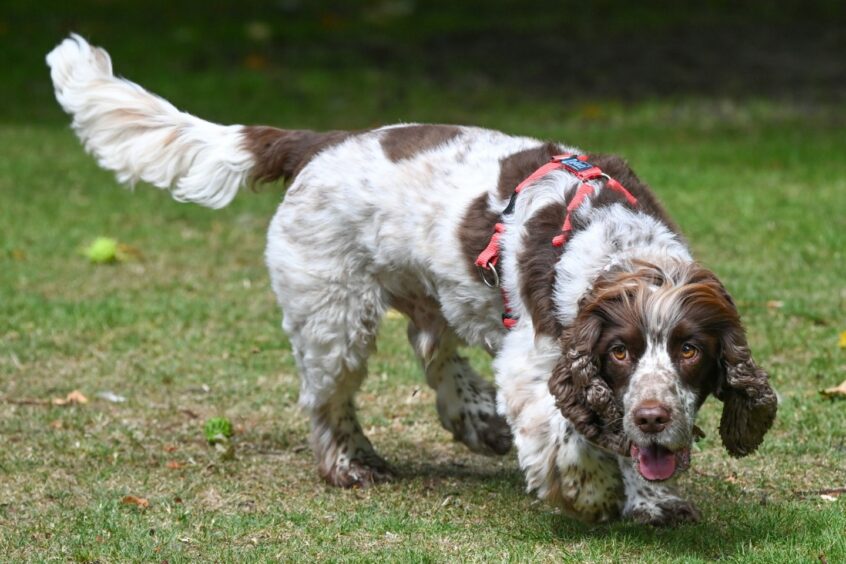
“By that point, you’re aware that he’s unhappy and he’s trying to tell you something. And with that in mind, you would go and check your blood sugar level.”
Matthew can’t recall a specific incident where Alan has saved his life but he says: “You could have a seizure at the wrong place at the wrong time and it could be a bad, life-changing situation.
“Fortunately, with Alan around, we’ve never got that far.”

Alan retires when he’s 10, but the all-round socialised dog will still be with them, even when his work is done.
“We’re family now,” says Matthew. “He’s good with people, he’s good with children, he’s good with everyone.
“And it’s the stability he gives. The seizures really had an impact on me but with Alan and the right medication it’s not a concern.”
Stilton, Aberdeen’s Instagram star
When it comes to perfect poses, no one has nailed it quite like Insta-savvy Stilton the pug.
Stilton is a well-known face in Aberdeen having fronted numerous campaigns and helped promote charity work.
He even comes with his own distinctive logo and branding, after achieving popularity for his adaptable style and an easy-to-work-with reputation.
From dog beds to animal charities, there’s nothing this four-year-old pug can’t turn his handsome face to and promote on Instagram.
With almost 40,000 followers, Stilton accompanies his owner Aberdeen photographer Sam Brill almost everywhere he goes.

Sam had had his heart set on getting a pug after spending time with a friend’s dog and falling in love with the breed.
“I never used to really like pugs but they’ve got such a good nature, such a good personality,” he says.
Sam finally found a Merle pug, notable for the unusual coat pattern.
“One of my friends came up with the name Stilton and I thought, ‘That’s perfect because he looks like mould!’” Sam laughs. “But he has patterns, like Stilton, so that’s why I went with that name.”
It turned out to be a good choice because at six months old, Stilton was London-bound for his very first photo shoot.
“In 2018, I ended up taking him down to London for a calendar shoot for dogs that are named after food,” says Sam.
The shoot was for The Gourmand’s 2019 calendar, Dog Eat Dog, with Stilton taking the December slot which saw him perched atop a Stilton cheese roll and working alongside Ham the Pomeranian, Seabass the whippet and Marzipan the Bernese mountain dog.
The sell-out calendar saw all proceeds going to animal welfare charity Mayhew.
“He was tiny then, just six months old,” says Sam, but, unfazed by this illustrious debut, the pup continued to use his good looks for good causes.

This included a collaboration between Brewdog and Ricky Gervais called Street Dog, promoting dog adoption charities All Dogs Matter and Dogs on the Streets.
The beer brand sold a limited edition run of their classic Punk IPA beer, each with a sticker showcasing a dog in need of a home.
“He’s a unique-looking dog,” Sam continues. “He’s so friendly and he just loves people. He’s friendly with other dogs, too, plus he’s quite funny.”
Stilton went on to work with Doghouse in Edinburgh, Aberdam, Isla Florist, Stella Accessories, Doggy Day out and more, often working with other dogs and turning his paw to fashion and style choices, too.
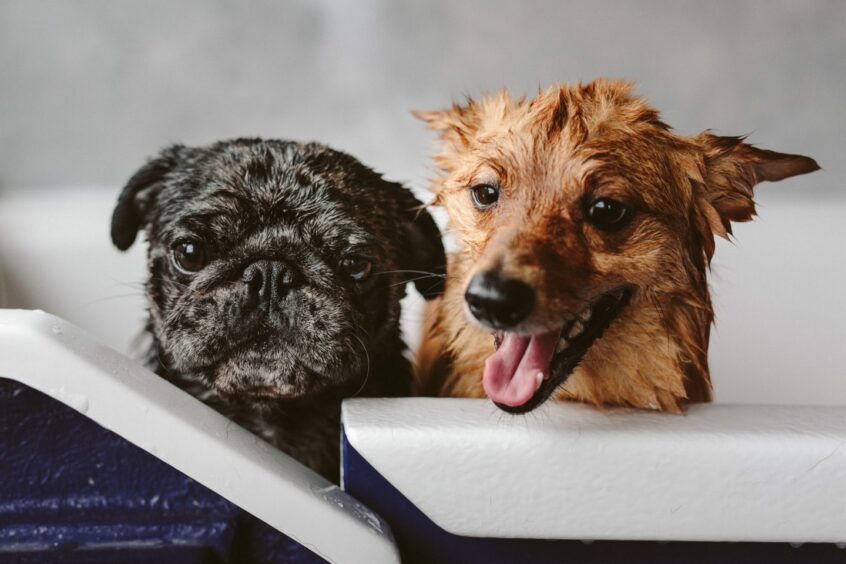
Stilton gets many requests for work and endorsements, such as dog leads, beds, clothes and food. So what’s the secret of his success on set?
“Pedigree’s beef and cheese flavoured Tasty Minis,” laughs Sam.
“The thing with pugs is that they’re very food oriented. He will just sit on people’s knees but you can get him to do anything you want if you’ve got food!”
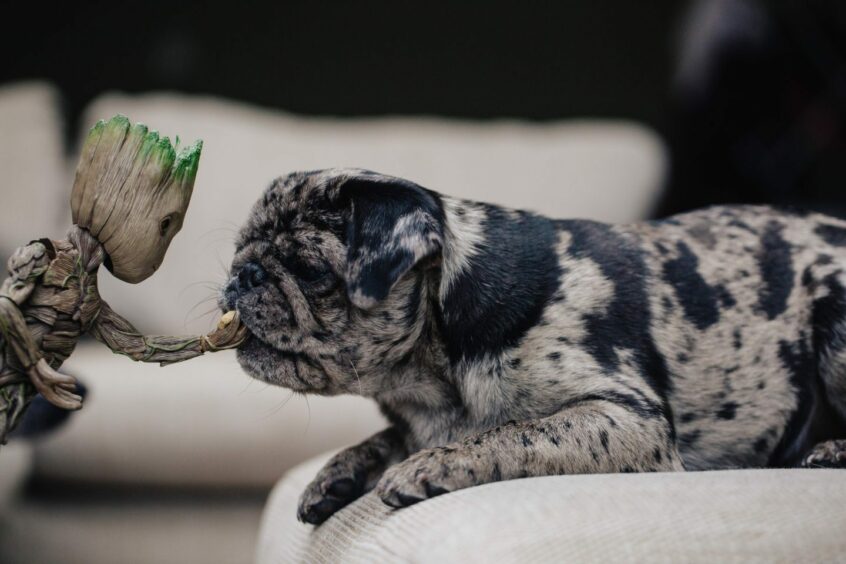
Stilton, who likes to follow Sam up to the loft where he sometimes works, learns to use a ladder assisted by Sam.
Bartie, care home therapet
Bartie has been working as a Pets as Therapy dog with care home residents for the last eight years, visiting residents initially at Inverness’s Highview Care Home and later in Wick at the Seaview Care Home.
Recently retired, 12-year-old Bartie was adopted by the Barrie family as a four-year-old from a Labrador rescue charity. A former show dog, placid and cheerful Bartie had all the characteristics the Barries were looking for.
Susan, Bartie’s owner, says: “At that point, we were first-time dog owners and we were looking for a dog that had a really calm temperament. We really landed on our feet when we got him.”
A couple of years later they heard of Pets as Therapy (PAT) and decided Bartie would be an ideal candidate for registration. Bartie then underwent his assessment, which includes temperament and how well the owner manages their dog.
Gentle Bartie quickly passed his assessment and since then has been a regular visitor at the care homes, where he would visit fortnightly.
“The residents just loved us coming in,” says Susan. “Some of the residents don’t get many visitors, or they don’t like leaving their rooms, so Bartie coming to them really brings a smile to their faces, and his tail is always wagging.
“And he just loves the attention – he probably gets therapy from it himself, to be honest!”
During lockdown, the activities coordinator at Seaview, Mandy, quickly got to work with the care home’s iPad and set up visits for Bartie with the residents.
“I think Bartie particularly liked it because, to get him to look at the iPad, I was feeding him a constant supply of treats, so he had a great time doing that,” Susan says.
“Some of the special moments have been with the residents who can’t communicate verbally. We walk in and their faces light up, and you can see that although they can’t say hello, they see the dog.
“Also, some of the residents don’t have very good eyesight so we position Bartie where they can touch him. If they feel the dog, they also get a big smile on their face.
“And the care home staff are dog lovers,” Susan adds. “I think it’s nice for them that they’re getting a bit of pet therapy during their shift.”
Bartie’s own “shifts” last only an hour and in that time he will see at least 20 residents, but in that short time he makes a real difference, says Susan, adding that Bartie’s wagging tail is one of his character quirks.
“He’s always wagging his tail, even when he goes to the vet! He’s got lovely big eyes and he’s really expressive and he doesn’t bark very much at all. Even the postman loves coming to see him because he knows he’s not going to get chased by him,” she says.
“Bartie’s just really calming and that’s why I thought it would be good to register him as a Pets as Therapy dog.”
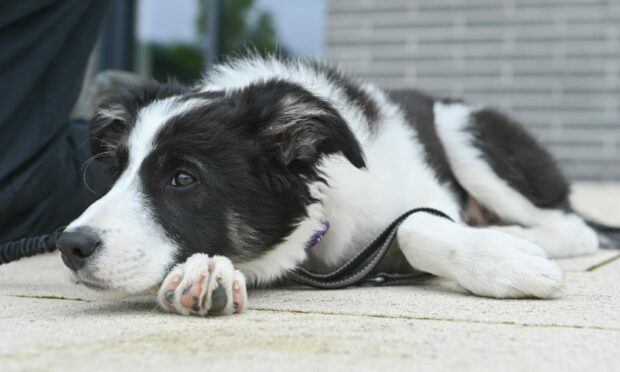
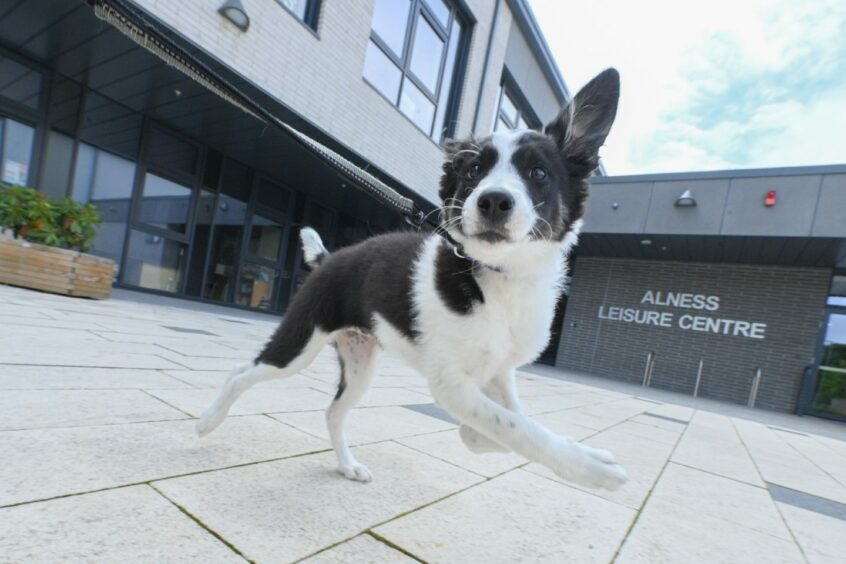

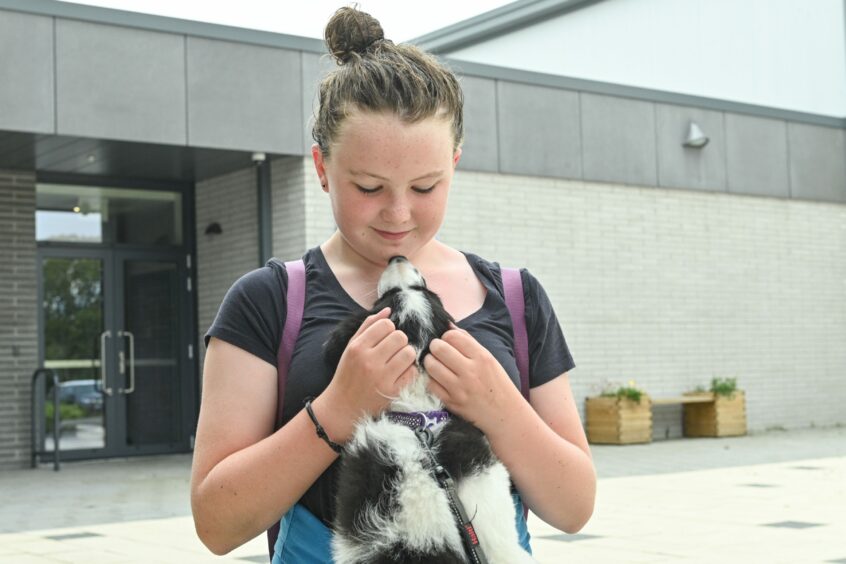
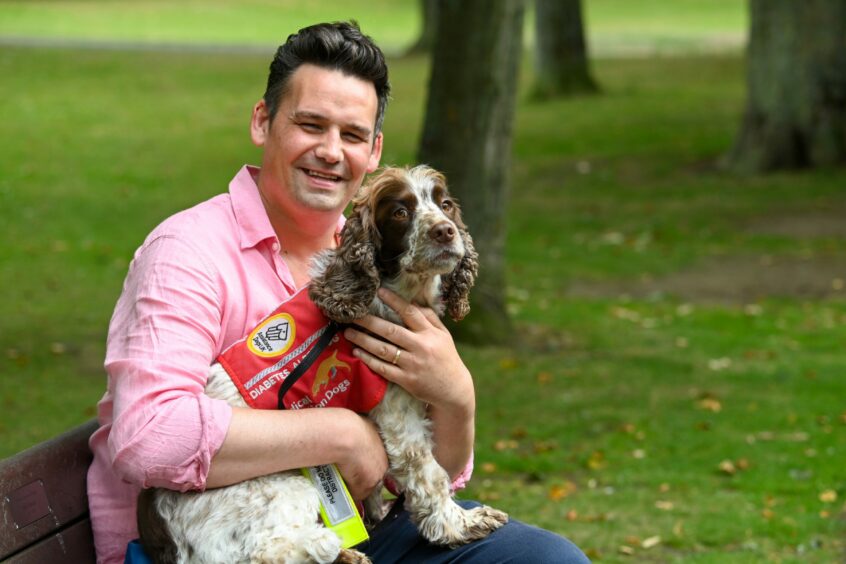
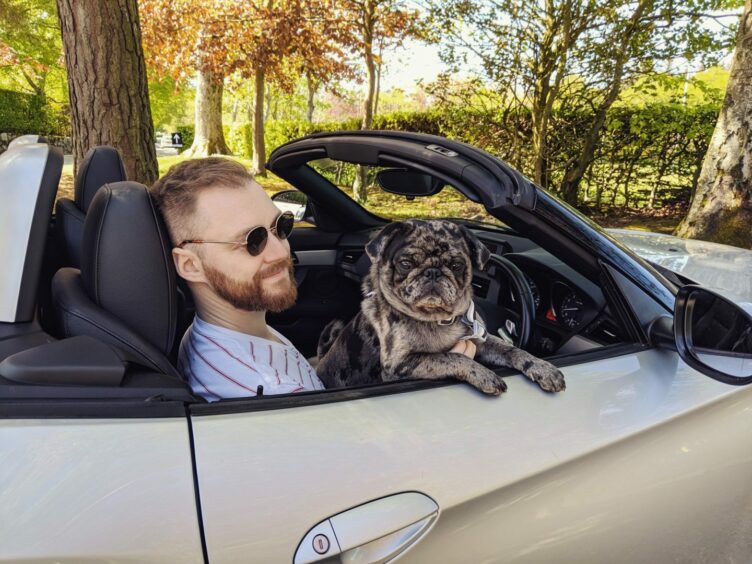

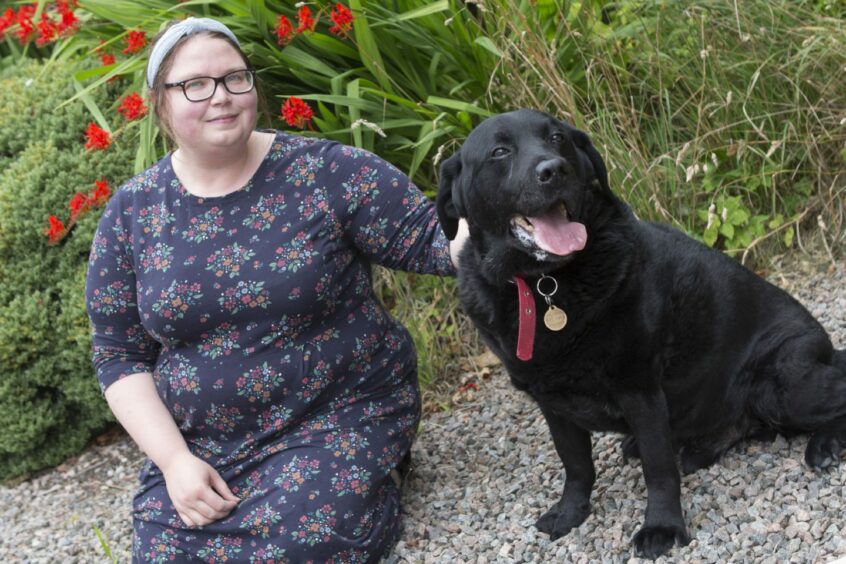
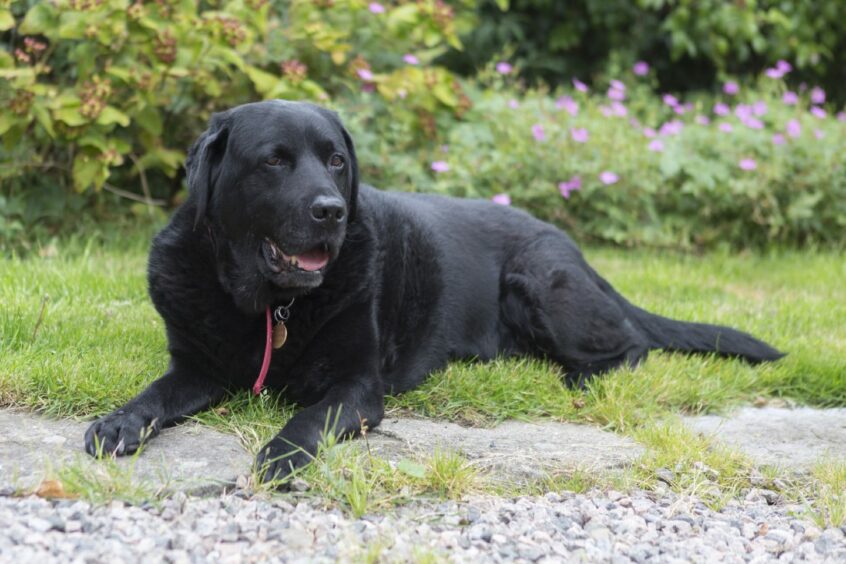
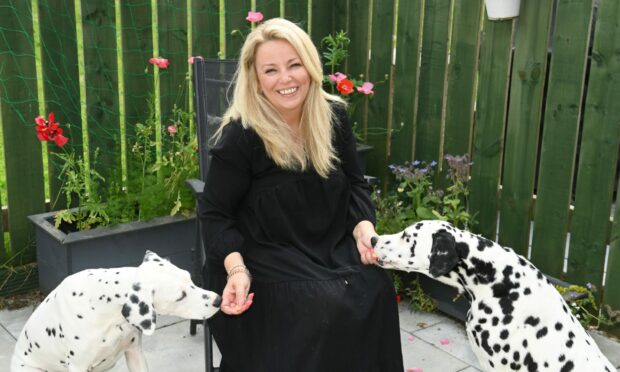
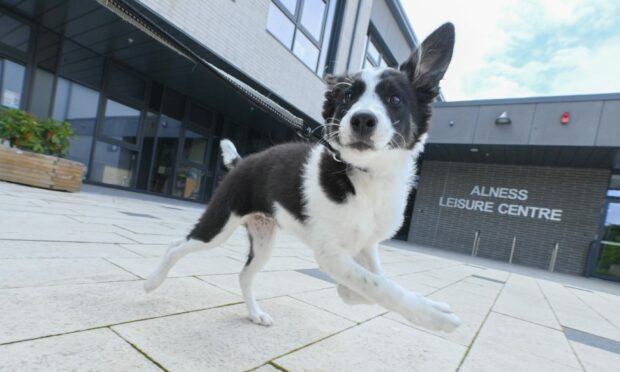
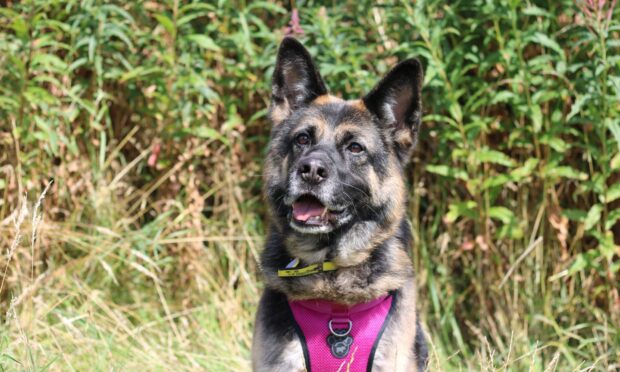
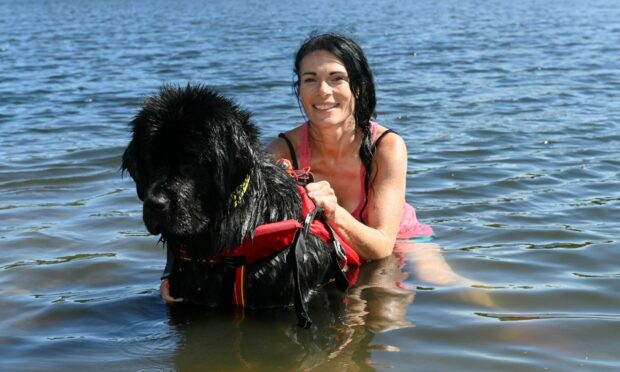

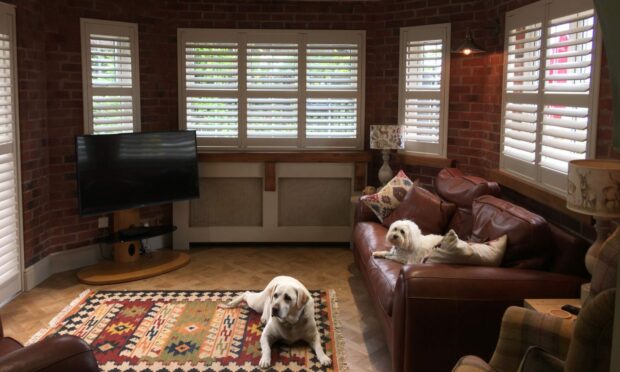
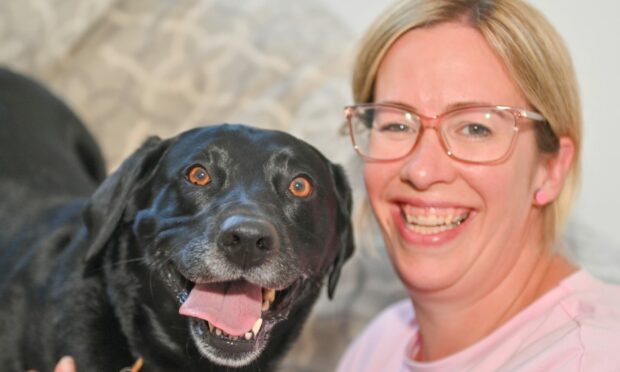
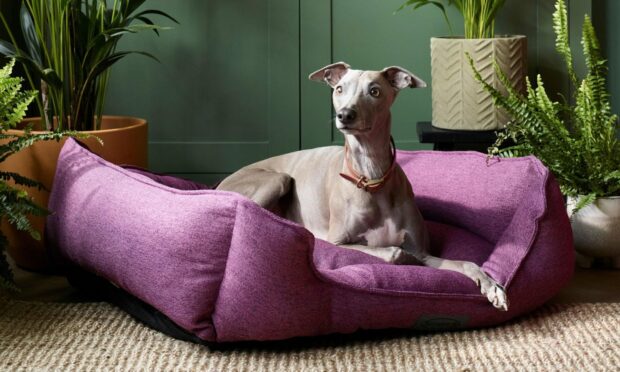
Conversation